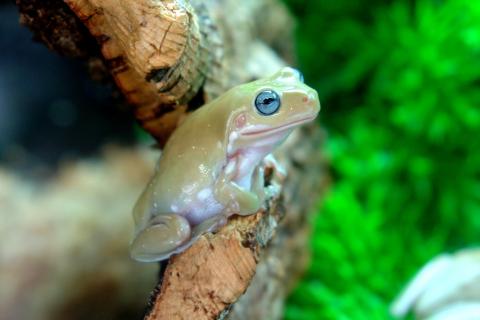It is widely believed that human ancestors came from Africa. As the primate groups adapted, they branched off to form the many different species found on the "tree of life." One group eventually morphed into modern-day humans. Since Africa has direct sunlight with warmer temperatures and ultraviolet rays pretty much year round, it brought pressure for the "natural section of darker skin color." Pigments, like melanin, in the skin protects it from the sun's strong and harmful rays. This helped to keep these individuals with darker skin alive longer so they could reproduce and pass their genes onto their children.
The main gene that determines eye color is closely linked to the gene that determines the color of the skin. Science holds that all early humans had dark skin, dark brown or nearly black eyes, and hair. If you haven't already guessed it, the gene that controls hair color is closely related to the eye and skin gene.
While scientists are 100% sure, most agree that the natural selection for lighter eyes is linked to the relaxation of the natural selection for lighter skin tones. As human ancestors began to migrate around the world, the need to have that darker eye and skin tone wasn't as necessary for human preservation. So what happened? "The genes began to mutate.
Eye color is a bit complex when talking about genetics. The color of human eyes is not dictated by a single gene like many of the other traits. It is instead considered a polygenic trait, meaning there are several different genes on various chromosomes that carry information about what eye color an individual should possess. These genes, when expressed, then blend together to make various shades of different colors." As eye color gene selection relaxes, it allows for even more mutations to take hold.
Humans who can trace their ancestors to Western European countries generally have lighter skin tones and lighter eyes. "Some of these individuals also have shown parts of their DNA that were very similar to those of the long-extinct Neanderthal lineage. Neanderthals, it is believed, had lighter eyes and hair color than their Homo sapien cousins. I sure didn't know that, did you? It is possible, scientists say, for even more eye color variations to evolve over time as those genes mutate even further.
Have a happy and safe weekend, everyone and please come back again on Monday for another of my informative blogs. Until then, I wish you all
PEACE.

 RSS Feed
RSS Feed